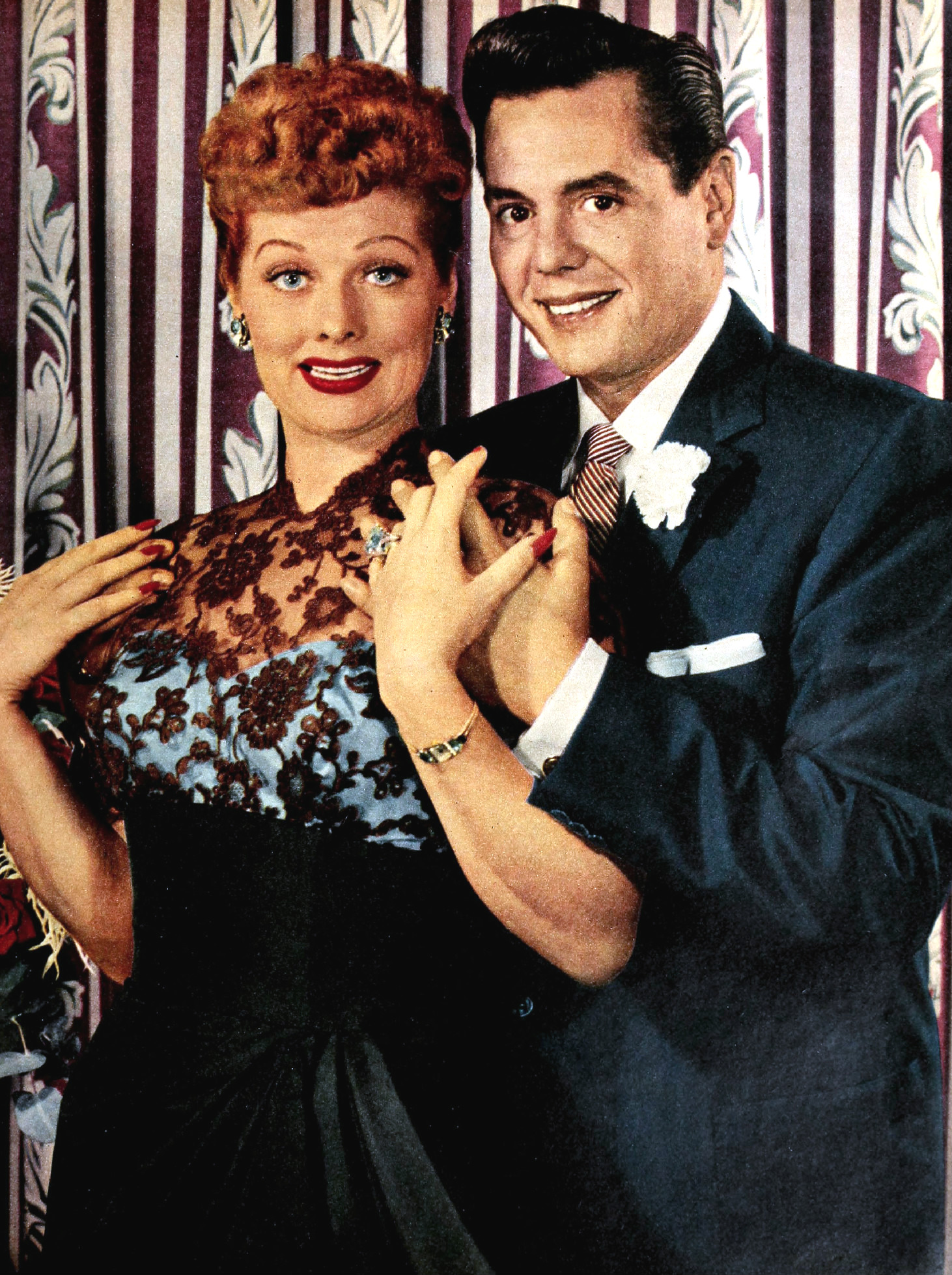LUCY
Lucille Ball has earned her place in television history with a combination of hard work and exceptional talent. Lucy, which chronicles her rise and tempestuous marriage, relies too much on the "Lucy" persona and not enough on the real-life figure.
Going from the final episode of The Lucy-Desi Comedy Hour to her life prior, Lucille Ball (Rachel York) has had a drive to succeed from early on. Always ready with a quip and eager to look foolish if it got a laugh, Lucille worked steadily once she went to Hollywood.
It was there that she locked eyes with dashing Cuban bandleader Desi Arnaz (Danny Pino). Their on-off-again relationship struggled through their divergent careers and his shameless womanizing. As she entered her forties, Ball realized that she was not going to be a big film star.
How about the new medium of television? A television program at the very least would give her a job, and a chance to have her wayward husband work with her. Over many objections ranging from having her Hispanic husband be the costar to her pregnancies, Ball went on to push I Love Lucy into an American institution. However, the more things changed, the more they stayed the same. Ball and Arnaz continued to struggle in their marriage. Despite their success and genuine love for each other, the pressures of life, love and career bring their personal and professional lives into near shambles. With that, they decide to end their partnerships.
I am not going to quibble about historical accuracy with regards to Lucy. All biopics have some inaccuracies to them. Therefore, people pointing out this, that and the other are pretty much wasting their time. What I did find more concerning was how Lucy appeared to blend the character of Lucy Ricardo with the private person known as Lucille Ball. Many times in Lucy, we saw her clowning around, rattling off funny comments or working to get a laugh. We never got the savvy, shrewd businesswoman who ran Desilu or her own career with zeal.
For example, a montage shows her getting pie and mud on her face in her early film work, but the actress of Dance, Girl, Dance or The Big Street were not there. Ball worked in all genres, and while comedy was her forte it was not the only style she did prior to the My Favorite Husband radio show. One finds it hard to believe that she would be constantly "on" with everyone she met and worked with. Lucy short-changes her range.
It does the same for other characters, such as I Love Lucy writers Bob Carroll, Jr. (Andrew Mitchell) who came across as a perpetually gleeful figure and not a capable comedy writer. How Ball and her costar Vivian Vance (Rebecca Hobbs) went from employer and employee to genuine friends is left unexplored. One pretty much figured that Ball's maid Harriet (LaChanze) would become BFFs, but how Harriet thought she could literally whack Arnaz on the head with a bottle after accidentally slapping Ball one can only guess at.
Lucy, to be fair, deserves credit for bringing up how she was mentored by Buster Keaton, but despite its best efforts one never shook the idea that it was confusing character with person. Katie Ford and T.S. Cook's script did not help matters with its sometimes too on-the-nose bits of dialogue.
As Arnaz is about to perform on a conga drum, he asks Ball to take care of his ring. "Rings get in the way," he tells her. This is a foreshadowing of his rampant infidelity, but it is rather heavy-handed. A whole monologue where Pino's Arnaz talks about how he needs a mistress because his father had a mistress, complete with illegitimate children, clearly makes Arnaz a total jerk. I know the film is about Ball, but it seems too hard on Arnaz.
Both York and Pino at times rose above the material. A scene where Ball talks about her sadness at the state of her marriage was strong. Pino also had good moments, such as when he calmly and shrewdly took control of I Love Lucy over the network executives who thought they could roll over someone they had contempt for.
Other times though, they were either poorly directed by Glenn Jordan or both York and Pino were just bad. Stabs at drama when Ball tells her mother "Your working days are over" or Arnaz mocks the overt intervention of his gambling are slightly more comical than the I Love Lucy reenactments.
I think Lucy is not a bad television film, but I also don't think that it gave these complex, complicated people a full portrait. At times lost in trying to bring "Ricky and Lucy" to life rather than "Desi and Lucille", Lucy could have been better.
 |
| Lucille Ball: 1911-1989 Desi Arnaz: 1917-1986 |
4/10
.jpg)

No comments:
Post a Comment
Views are always welcome, but I would ask that no vulgarity be used. Any posts that contain foul language or are bigoted in any way will not be posted.
Thank you.